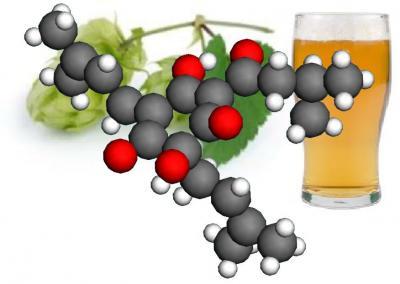Beer happened for the best of reasons; back when early man was running out of berries to forage and game to hunt, a schism happened in ancient tribes. In once camp were the Luddites who wanted to stay rooted in the past; hold the population down, mitigate, ration, raise money for awareness campaigns about how much we stink because we ruin Gaia. Basically, prehistoric environmental activists. In the other camp were prehistoric scientists who figured out how to domesticate livestock and how to grow grain.
It was a lot of work and so those prehistoric scientists also decided to figure out a way to use some of that domesticated grain to knock back a cold one at the end of such a long day. Well, a warm one, it would take a while for scientists to understand refrigeration and for activists to figure out ways to complain about that too. The Sumerians may have been the first to understand beer, we can't be sure. What we do know is if they didn't invent the first alcoholic drink, they invented the first alcoholic drinking song.
The Sumerian 'Hymn to Ninkas' - obviously she became the goddess of brewing - is really their recipe for beer. They had a goddess of brewing because clearly beer was a gift from the gods. I would even be so bold as to postulate that bread was invented to have a light way to ship beer - ship the bread, mix it with water onsite. And that also meant the first prehistoric sports tailgate party, beer from the back of a wagon while watching people kick goat heads or whatever they did millenia before civilization invented polycarbonate plastic helmets as the ideal way to score the most concussions.
Fast forward 6,000 years and we are still discovering properties of why beer is awesome. Example: A new paper says humulones, the slightly bitter-tasting chemical in hops, could even benefit drug development.

A picture means this must be science. Credit: Werner Kaminsky
Researchers used X-ray crystallography to figure out the exact structure of the acids, humulone molecules and derivatives produced by hops in the brewing process. The forms the humulone molecule takes determines its "handedness" and how they rearrange during the brewing process to get a ring with five carbon atoms instead of six. Two side groups formed at the end of the process can be configured four different ways – both groups can be above the ring or below, or they can be on opposite sides. Paired properly, so they fit together, things are good. Improperly paired, and disaster can happen. They cite the 1950s instance of thalidomide - you have heard of thalidomide, its carcass is dragged out by every anti-science crank who insists science is out to kill us, except when it comes to global warming, then scientists can be trusted. It had many safe uses but treating morning sickness in pregnant women caused birth defects. Its "handedness" in one form had no negative effects but in another was responsible for birth defects.
"Now that we know which hand belongs to which molecule, we can determine which molecule goes to which bitterness taste in beer," said University of Washington associate professor of chemistry Werner Kaminsky.
Coming up soon, we hope. A better list of which specific diseases beer can cure. We know it works for loneliness and depression.
Want to do your own studies? You may have the equipment laying around the house. A red Solo cup is a terrific beaker because it already has the measurements on the container for you. And it can work for many different types of experiments.

Citation: Jan Urban, Clinton J. Dahlberg, Brian J. Carroll, Werner Kaminsky, 'Absolute Configuration of Beer′s Bitter Compounds', Angewandte Chemie International Edition
Volume 52, Issue 5, pg 1553–1555, January 28, 2013 DOI: 10.1002/anie.201208450




Comments